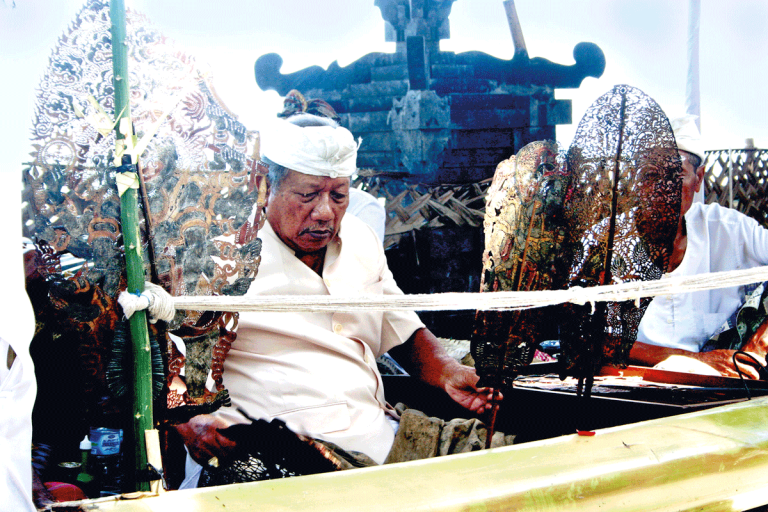The Lord of Puppeteers, Sanghyang Iswara, is honoured when the Balinese Hindus celebrate Tumpek Wayang Day.
On this day, puppeteers (Dalang) throughout the island will present offerings to their shadow puppets (wayang kulit) with the intention of honouring the Lord Iswara. The puppets are taken out from their cases to be blessed by their owners and placed in a position as if an actual performance is being held. The objective is to invoke smoothness and reliability during a real performance, and for the puppet to be able to captivate the audience.
A theatrical expression in Bali, Wayang (or shadow puppet) is often performed as entertainment as well as an integral part of a number of Balinese Hindu Rituals. The Wayang figures, normally portraying Hindu characters, are manipulated with rods by these puppeteer, or Dalang. He tells the story to captivated crowds alongside the gamelan orchestra. They are not only forms of entertainment however, often the stories of the Dalang were used to share and spread lessons of good morals to the people.

Although Tumpek Wayang is a holiday for puppets and puppeteers, it is considered very unlucky if a baby is born on this day. The Balinese believe the child is prone to illness and injury from Kala, the demon god, and if a child should come to this world on this inopportune day, a special ceremony has to be performed in order to purify the child and protect it from harm.
This purification ceremony is called Sudamala; it is carried out by a Dalang in which the Dalang narrates a story about the birth of Kala, and how the Dalang receives special blessing from Kala that enables him to purify the baby. With the help of certain puppets, the Dalang carries out the Tumpek Wayang ceremony, and makes holy water (toya penglukatan) that is used to purify the baby.









